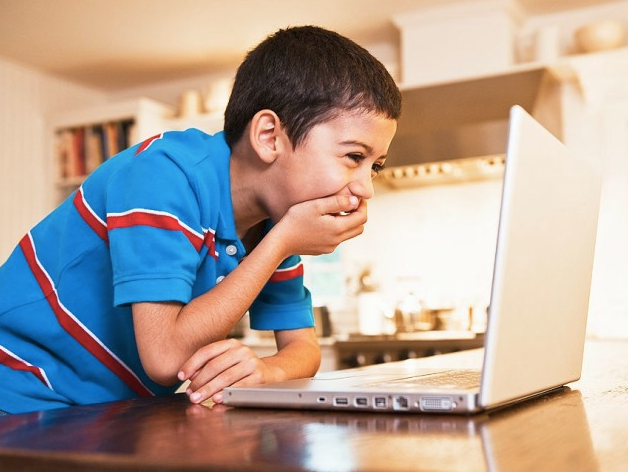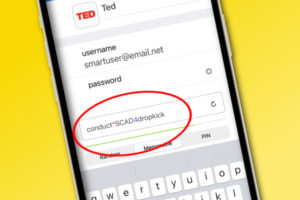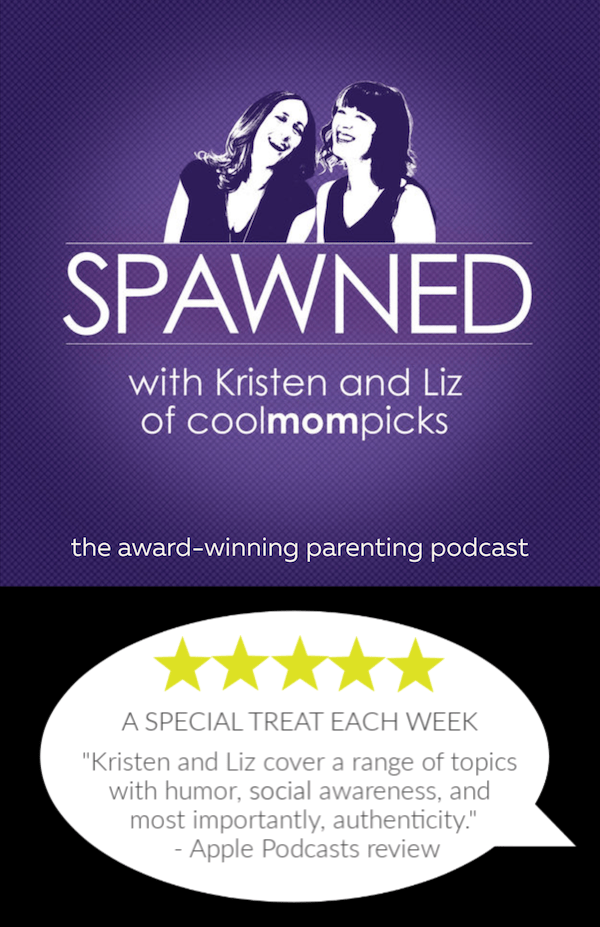 Just this week, Facebook leaked that they are considering allowing kids under 13 onto the site, albeit it with parental supervision.
Just this week, Facebook leaked that they are considering allowing kids under 13 onto the site, albeit it with parental supervision.
There’s been lots of speculation as to why (stocks down, need new readers for page views), so it makes sense to target the group of people who marketers are trying desperately to reach–although we’ve also heard that the under 13 section will be ad free.
While the current rules state that users must be 13 or older, let’s be honest here; there are an estimated 7.5 million underaged kids already on Facebook, many of whom did so with their parents’ help. Actually, more than 1/3 of them, according to a Microsoft study reported in AdAge. Even so, this is serious issue–whether they’re 10 or 14, quite frankly–and one that bears discussion from parents. So here are our concerns about kids on Facebook, and where we stand on the issue. Of course, we’d love to hear your thoughts too.
Concern #1: Safety
It can be nearly impossible for a parent to think of every possible
scenario where someone might ask them for personal information, or
request a photo.
While Facebook has discussed linking underage accounts directly to the parents (and we recommend that even for older teens), we’re not quite sure how effective this would be. If kids know that all their actions are being monitored by their parents, will they even want to use the site?
Will they set up a second “real” account by typing in a fake birthdate?
Supervision takes some serious education on the part of parents, many of whom aren’t even aware of the implications of posting photos and updates on Facebook, let alone the ever-changing privacy settings. While we’re seeing more parents take an active role in their kid’s technology consumption, it’s not something that all parents are thinking about as much as we are. Or something they may not have the time to do, considering how often kids use social media.
 Concern #3: Cyber bullying
Concern #3: Cyber bullyingObviously all parents are concerned about cyberbullying these days, which can take the form of texting or “hate” blogs. Facebook makes it easier for immature kids to harass their peers. Especially considering photos (doctored or not) and words can live indefinitely in the cache. If your younger child is going to be on Facebook, it’s extra important that you have frank bullying talks frequently, so that if your child is a victim (or a perpetrator) you can stop it before it has a chance to blow up.
Concern #4 Social media interactions affect one’s future
Photos and posts are forever on the internet. Enough said?
pop-up ads just to play her little Webkinz game, so I can only imagine
how much parents are going to have to talk to kids about Facebook ads. Especially ones that don’t seem like ads, like a game invitation. (Companies like McDonalds currently have Farmville integration.) I’m also wondering what the guidelines for advertising to tweens and children will be.
While parents are rallying for an ad-free experience to the under-13 accounts, there’s still the issue or Facebook –and their advertisers–mining the data and usage habits of children in order to profit.
On the positive side, so many people are using Facebook outside of the socializing aspect that we might expect. More classrooms utilizing it as a way to connect student; families use it as a way to share photos and stay in touch; and so it could be that the benefits for our kids will outweigh some of the scary downsides–most of which will just require more effort on our parts.
Heck, this could be the way for us to actually keep up with ours kids better and find out what they’re up to without having to grill them every night. Of course it won’t (and shouldn’t) replace actual conversation, but for those with elusive teens, maybe Facebook will bring you closer together. –Kristen
[top photo via; second photo via picture youth]
We’d love to know what you think – is opening Facebook to children the end of the world as we know it, or the opening of an exciting new one?







No. My oldest is ten. No way. She can have a FB page when she’s in HS. One that I will pay major attention too.
She knows kids who have them. She wants one but I flat out refuse.
No way. Not on FB … It’s hard enough being a kid in this media filled world .. .there’s time for social media for them but not now.
Nope! I want my children to learn and practice real-life social skills before falling back on the world of on-line social skills. Same goes for the cell phone, want them to learn to make phone calls and talk to their friends before they can bury their head in texting. I hope this will help them understand the real social world and make better choices once online.
Yes please! My daughter homeschools and this would be a great way for her to connect with peers and friends who have moved away. The same way she sees me doing it! We have had (and continue to have) many frank talks about privacy and cyber bullying. As far as data mining goes, part of me would really like all those companies to know that there are 9 year old girls out there who are interested in something besides Justin Bieber.
That said – I’d love for the under-13s to have ad-free pages.
I’d let her have an account now, but I think it sets a bad example for her to see me put in a fake birthdate for her.
As an owner of a content creation site for kids under 13, KidzVuz.com, and a parent, I am wary of the underlying advertising dollars motivation for facebook. Since grown-ups don’t understand the privacy settings it’s pretty unlikely they will know how to stay on top of it for their kids. But, facebook could set all kids accounts to no-track, no-collect and make that easy.
The harder part is that even though facebook could set up a COPPA compliant segment on the site, they will NOT be doing any sort of moderation of content. That means that younger and younger kids will be open and subject to horrendously mean and malicious comments, ridicule and teasing via their wall or newsfeed. That’s my much bigger worry as someone who spends a giant chunk of time overseeing the moderation on my own site and sees what kids try and post about and to one another. How many kids under 13 – or over 13, or adults for that matter – are ready for the kind of cruel trolls out there in the virtual space?
For that reason alone, I think it’s an incredibly tricky proposition.
I think that 13 is too young. They simply aren’t ready for it at that age. The over-sharing, the trying to be cool, the cyber-bullying issues….we’re all learning, as adults, what the broader implications of social media sharing are. A child – and that’s what they are, children – has no idea what posting a picture of themselves in a compromising position could mean for their future. If every little foible I made when I was a kid was broadcast to the world, who would I be today?
My job is to be the gatekeeper for my children – even when they don’t want me to.
I agree with all of these concerns. There are much better solutions out there for kids and friends and family of all ages to communicate online.
Check out the startup company I work for. They’re making something pretty cool and so much safer than Facebook. https://kinvalley.com
No way too young fb should be for high school and older.we have 2 computers in the house and no kids are allowed to use it..I think the internet is way to dangerous for kids to use so my answer is no
I can almost guarantee she probably has one already. Kids these days are fiding way to bypass the security lines in school and there is where she will create one of her own. You cannot be everywhere all the time. I believe it best to talk to her or find some common ground rules. You say no and kids will want it more. Thats always how life has been and you saying no is not going to be the final word. sorry.
Thanks for your comment Ray. We are strong believers in talking to kids about internet safety early and often. However this program is really meant for kids too young to probably be online by themselves and still at the age when they’re listening to their parents, ha.